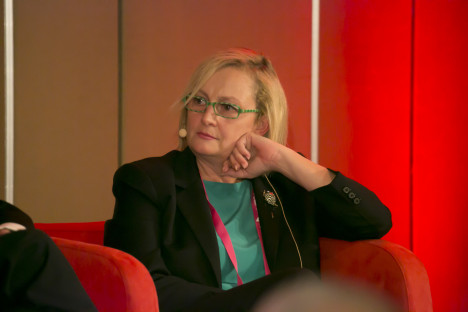Facebook needs to follow the example of traditional media
Facebook’s recent measurement woes show the need for independent monitoring in media argues Kim Portrate, chief executive at ThinkTV.
Like many of you, I’m a working mum. And, like many of you, when I hit Coles or Woolies after work I am generally rushing to buy food for the family.
As I repeated this all-too-frequent event at the shops last Thursday, it was Facebook, not the shopping, that got me thinking.
As I grabbed yoghurt – my teenager put it on the list – I realised it wasn’t the fat-free kind. She’s asked for the 99.9% fat free kind and if I got it wrong there was going to be trouble. After all she asked for 99.9% fat-free yoghurt and was expecting it to be exactly that – because, for her, you would only buy yoghurt if it’s fat-free.



“Maths” please. It’s not the science of “mathematic”.
Your teen has it all wrong. Fat free yoghurt has been proven to have additional sugar, and is therefore less healthy – and more likely to make you gain weight – than the full fat stuff.
And perhaps there’s a metaphor there in terms of this article’s proposition. Perhaps we need to stop relying so much on data and stats, and go with what else we know, what else is happening out there, what we know about the world, what has been proven to work. Not just data. Anyway, just a random thought.
OzTam is owned by the free to air networks… not exactly “the gold standard for independence”.
Please god no. No one should think that OzTAM is reliable. Even if it doubles, it still is a bad compromise. What’s funny is that somehow people think that TVs self serving black box approach to measurement is even close to being better in terms of accountability that most digital measurement. And here is the big difference: at least digital measurement can be proven wrong. TV measurement is so obscure, weak and biased that there isn’t even enough data to ever prove it wrong.
Stick to accountancy, and I promise I’ll buy you another pocket protector.
@The Statistician, would love to know what basis you have to dismiss the claims? Want to back up with any actual evidence or just veil your lack of credibility behind sarcasm ?
For anyone interested in the detail of what this guest opinion refers to, please turn to http://newsroom.fb.com/news/20.....reporting/
Kim’s sentiment for accuracy in metrics is valid and important, but the analogy needs to be corrected. Nobody bought any yoghurt, even figuratively. Important to note that the ‘woes’ referred to involved metrics on organic results, not on bought media.
The Australian online industry has one of the most sophisticated independent measurement systems in the world and it was launched some five years ago by IAB Australia. I know because I’m Chair of the Measurement Council. Our digital audience measurement, delivered by Nielsen provides validated, independent and reliable metrics which are continuously evolving to meet advertiser needs. All the things that Kim is seeking.
And let’s not confuse issues either – the digital industry is not just Facebook. There’s a variety of other digital platforms – catch-up TV, radio apps and OOH, as well as the more obvious online publishers. All of which are aiming to provide accountable and transparent audience measures to advertisers.